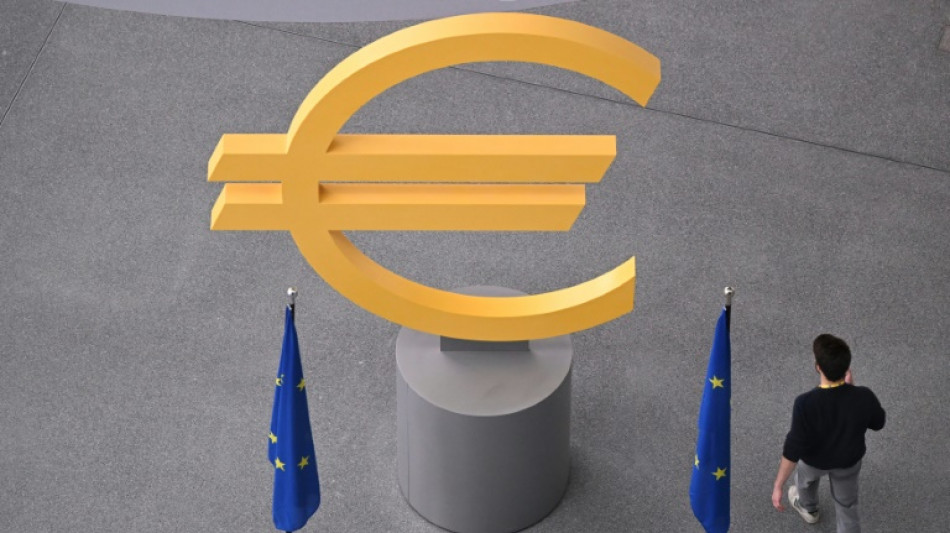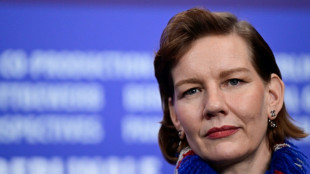
France political crisis looms over ECB meeting

France's political crisis will likely take centre stage at a European Central Bank meeting Thursday, with turmoil in the eurozone's second-biggest economy causing a fresh headache for policymakers.
The ECB is expected to hold its key interest rate steady at two percent for its second straight meeting, with inflation under control and trade tensions having eased since an EU-US deal was agreed in July.
But the latest French political crisis has thrown a new curveball at the central bank for the 20 countries that use the euro.
Francois Bayrou quit as prime minister on Monday following his defeat in a confidence vote over an austerity budget, and was replaced just 24 hours later by Sebastien Lecornu -- France's third prime minister within a year.
The turmoil sent France's borrowing costs, a measure of investor confidence, surging above those of traditional eurozone debt laggard Italy.
ECB President Christine Lagarde is certain to face questions about the ructions in France, although she will likely stress that she does not comment on politics in individual eurozone member states.
Lagarde, who was French finance minister from 2007 to 2011, may however at least "repeat the ECB's standard call for fiscal responsibility," said analyst Felix Schmidt of Berenberg bank.
But she is nevertheless likely to be pressed on whether the ECB is weighing the use of a special mechanism aimed at calming disorderly movements in bond markets.
This tool, known as the Transmission Protection Instrument (TPI), involves the ECB buying bonds of a eurozone country that is struggling to raise finances due to unjustified market attacks -- although not if a country is struggling due to weak fiscal discipline.
Established in 2022 during a period of instability in Italy, it has never been used.
- Easing inflation, trade worries -
Analysts however see little chance of the tool being deployed for now.
They believe it would only be used if the French crisis spread to other countries, pushing up their borrowing costs -- as happened during the eurozone debt crisis in the 2010s.
But there is little sign of this happening yet, with markets largely remaining calm so far.
"There is little reason to think that escalating problems in France would lead to problems elsewhere," said Jack Allen-Reynolds, deputy chief eurozone economist from Capital Economics.
France undoubtedly faces a worsening financial situation, however. Its debt has reached 3.3 trillion euros, or 114 percent of its gross domestic product.
Bayrou had been seeking to make tens of billions of euros in savings, budget proposals that ultimately led to his downfall.
Lecornu now faces the unenviable task of trying to build a government with enough parliamentary support to avoid an early demise, and to come up with a budget for 2026.
Adding to the ECB's worries is an increasingly bleak outlook in Germany, the eurozone's top economy, where recent data have dashed hopes for a strong rebound.
Such concerns are not expected to affect the ECB's rate decisions for now, with the central bank expected to stay on hold Thursday.
After a historic run of hikes to tame a surge in consumer prices followed by a series of cuts, inflation has stabilised in the bloc at around the central bank's two-percent target.
Some analysts believe the ECB will likely keep rates on hold for some months, as they wait for the effects of previous reductions to feed through to the eurozone economy.
Meanwhile the tariff uncertainty that kept the ECB on its toes for months has subsided after US President Donald Trump struck a deal with the EU that sets levies on most goods from the bloc at 15 percent.
The ECB will release new forecasts on Thursday with analysts expecting slight downgrades for growth and inflation predictions for 2026.
W.Sim--SG

 London
London

 Manchester
Manchester
 Glasgow
Glasgow
 Dublin
Dublin
 Belfast
Belfast
 Washington
Washington
 Denver
Denver
 Atlanta
Atlanta
 Dallas
Dallas
 Houston Texas
Houston Texas
 New Orleans
New Orleans
 El Paso
El Paso
 Phoenix
Phoenix
 Los Angeles
Los Angeles



